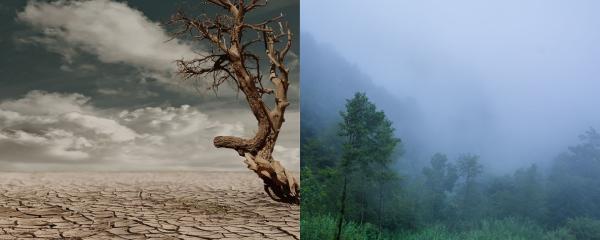
IIT Palakkad study shows how different indices used to predict drought combined with effects fof climate change can lead to different climate predictions for the future

IIT Palakkad study shows how different indices used to predict drought combined with effects fof climate change can lead to different climate predictions for the future
Researchers from IIT Bombay propose algorithms for service providers to efficiently manage the choice of the right network for your mobile devices.
Researchers from IISc, Bengaluru, and Sri Venkateswara University, Tirupati, have developed nanoparticles that can deliver drugs to targeted mammalian cells, using a type of plant virus called sesbania mosaic virus.
Researchers at the Institute of Seismological Research, Gandhinagar M. S. University of Baroda, MG Science Institute, Ahmedabad and ETH Zurich, Switzerland, have found evidence of a fourth tsunami event on the coast of Kachchh in western India, which happened about a thousand year ago and was previously undocumented.
Marrying off girls before they are eighteen years of age, also called early marriage, is a norm in many communities across the world. It is estimated that 15 million girls are married by the age of 18 each year in the world.
Our genes affect every aspect of our lives, from the way we look to the diseases we get. However, they don't act in an isolated manner, because we are also affected by the environment we live in. Our diet, exercise levels, pollution levels in the place we live – all affect what happens to our bodies.
Prof Rohini M. Godbole and Prof Sharada Srinivasan, two Bengaluru-based scientists, were among those conferred with the prestigious Padma Shri award announced yesterday by the Ministry of Home Affairs, Government of India. Prof Rohini Godbole is a Professor at the Centre for High Energy Physics, Indian Institute of Science. Prof Sharada Srinivasan is a Professor at the National Institute of Advanced Studies (NIAS), Bengaluru.
Imagine you come home to your city and find no one! While it isn’t very probable in human societies, a similar phenomenon called colony collapse disorder is often found in honeybees. Here, worker bees mysteriously start disappearing from their hives, and that leaves no one to do the housekeeping, nursing and foraging. Hence, the honey bee colonies start collapsing.
Researchers from IIT Kharagpur and the Borehole Geophysics Research Laboratory, Karad, have found evidence of microbial life in the rock samples of the Koyna-Warna region of western India.
Researchers from the Wildlife Institute of India, Dehradun, have discovered a new subspecies of hog deer (Axis porcinus) in Northeast India, which was earlier thought to have been found only in southeast Asia.
Study by researchers from the CUH, JNU, New Delhi, and NBSS & LUP, New Delhi, provides more evidence on the groundwater contamination in the Upper Gangetic basin.